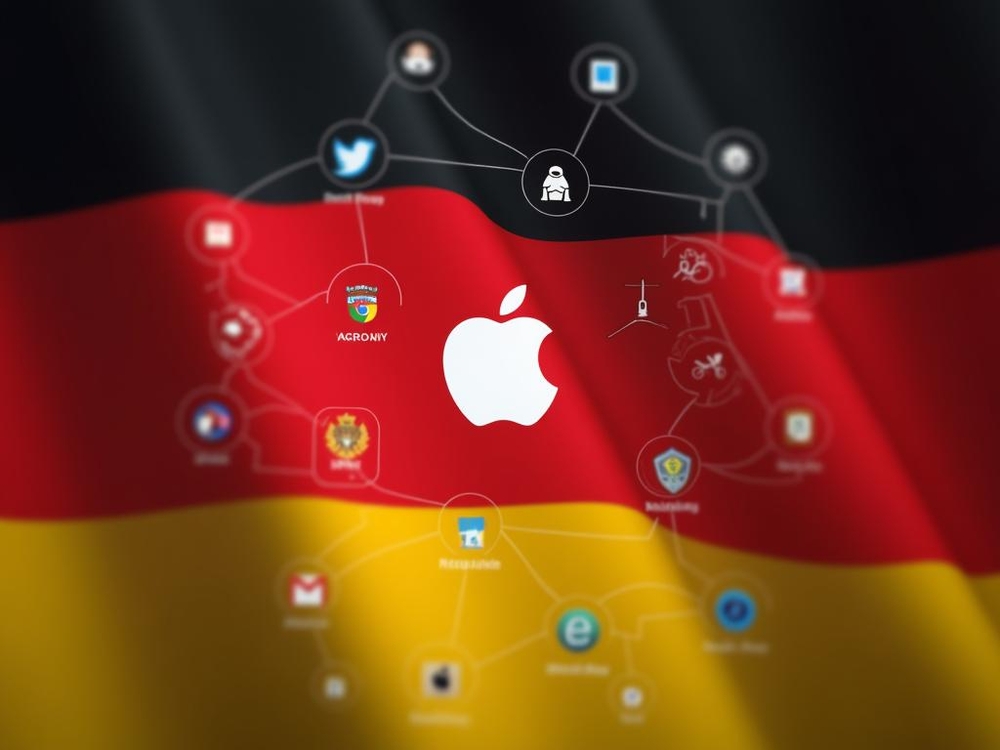Published
- 3 min read
Apple Antitrust Loss in Germany: New App Store Regulations

Apple loses antitrust appeal in Germany, now faces new app store rules
Apple has been facing increased scrutiny in Germany since 2023. It has now lost its latest appeal regarding how it runs its App Store.
The Bundeskartellamt, which is the Federal Cartel Office of Germany, argued that it should have the right to order Apple to make changes to its App Store practices. A court has now granted it this right.
Why increased scrutiny matters globally
This increased regulatory scrutiny of tech giants like Apple goes beyond Germany. It’s part of a worldwide trend where countries are beginning to question the power of massive tech companies. Such moves can set precedents that other countries might follow. As tech knows no borders, the changes implemented in one place can ripple globally.
When regulators act, they are often thinking about the long-term impact on consumers and competition. For companies like Apple, it could mean adjusting business models and policies to comply not only with local but international expectations. People outside Germany should pay attention as similar changes might come to their own countries.
A key difference between US and European law
There’s a fundamental difference between how antitrust issues are handled in the US and Europe. In both, regulators must first prove a company is interfering with competition. The US, however, requires proof of actual consumer harm, like higher prices. In contrast, Europe only needs to show potential harm. This lets them intervene earlier to prevent problems.
The Bundeskartellamt determined Apple’s App Store policies created potential harm. It decided it had the right to demand changes. Apple argued against this, claiming it wasn’t dominant in the app market, hence its policies shouldn’t be regulated.
Apple loses appeal
Apple lost its appeal on Tuesday. German courts supported the Federal Cartel Office’s 2023 view that Apple is significant in market competition. This allows Germany to enforce rules on iPhone apps sale practices.
Different perspectives on the ruling
Apple argues that it doesn’t hold a dominant market position. The company believes its policies benefit consumers by ensuring app security and quality. Meanwhile, regulators critique Apple’s control over app distribution on iPhones as stifling competition.
Apple points to the quality and security of its App Store as a benefit. Regulators, however, express concerns that this control limits choices and innovation.
Impact on competing companies
Apple’s situation isn’t unique. Google’s faced similar antitrust actions. The EU fined Google €8.25 billion for its Android operating system practices. Meta, formerly Facebook, continues to wrestle with privacy and data regulations worldwide. These actions show how regulatory decisions impact these tech giants’ business strategies and their day-to-day operations.
Impact on users and developers
So what does Apple’s antitrust loss in Germany mean for app developers? It could affect how they distribute and price apps. Developers might find it easier to launch apps through third-party stores or even negotiate better terms with Apple. More flexibility and choices could spur innovation and competitiveness.
How will Germany’s new app store regulations affect iPhone users? There might be more app options from different stores. App prices could become more competitive as alternatives increase. However, Apple users might see changes in app vetting, leading to potential security concerns.
What’s next
This case adds to the global scrutiny of tech giants. The Digital Markets Act already changes how companies like Apple operate in Europe. More regulatory frameworks might emerge as governments aim to protect competition.
This piece discussed what Germany’s decision means globally and for users. It’s important to watch how these rules change the tech landscape. If you’re interested in tech policy or innovation, stay tuned for more developments in antitrust discussions. It’s a crucial time in tech history, shaping how we interact with these services.